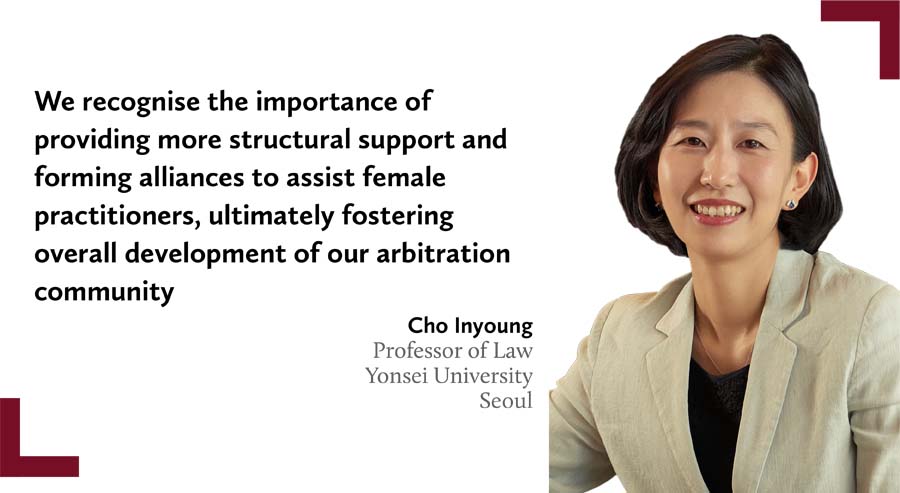With the establishment of a Women’s Interest Committee within the state-backed arbitral institution now firmly in place, Freny Patel talks to pioneering South Korean female lawyers about issues impacting them and the future of arbitration in the country
Women have long been recognised as effective mediators in the resolution process, tending to offer holistic plans at the negotiation table. Rather than focusing on merely making warring parties happy, they often take into account socioeconomic issues in resolving conflicts.
May 16 marked the seventh anniversary of the Equal Representation in Arbitration (ERA) Pledge, which was drawn up in recognition of under-representation of women in international arbitral tribunals. The pledge seeks to increase – on an equal opportunity basis – the number of women appointed as arbitrators, and to achieve fair representation as soon as practically possible with the ultimate goal of full parity.
Although there has been an increase in the appointment of women arbitrators, female practitioners continue their battle for greater gender parity.
Following the launch of the pledge, representation of women in international arbitration increased in terms of total arbitrator appointments globally, from about 12% in 2016 to 26.1% in 2021, according to the International Council for Commercial Arbitration’s Cross-Institutional Task Force on Gender Diversity in Arbitral Appointments and Proceedings, in its latest update report.
But although statistics indicate a rise in gender diversity in arbitrator appointments, the increase is very gradual. In absolute numbers, female arbitrators are substantially less represented than their male counterparts in the majority of arbitration institutions worldwide. The progress is at a snail’s pace and far from achieving its goal of gender parity.
South Korea’s arbitration institution is a signatory to the pledge, but the arbitration scene is no different here than in most jurisdictions. Female practitioners encounter invisible barriers including networking limitations, mentoring gaps, limited job opportunities and access to high-quality information, and challenges in managing work-life balance, says Cho Inyoung, a professor of law at Yonsei University in Seoul.
But in the face of adversity and exclusion, South Korea’s female practitioners in international arbitration have taken the lead for initiating change in their arbitration landscape, establishing the Women’s Interest Committee (WIC) within KCAB International, an independent division of the Korean Commercial Arbitration Board (KCAB).
The committee aims to provide an ongoing forum to discuss issues pertaining not only to women arbitrators and practitioners, but everyone invested in the future of South Korea’s arbitration community.
Lim Sue Hyun, a former secretary general of the KCAB, played an instrumental role in bringing together female arbitrators and practitioners to create the WIC in November 2021.
You must be a
subscribersubscribersubscribersubscriber
to read this content, please
subscribesubscribesubscribesubscribe
today.
For group subscribers, please click here to access.
Interested in group subscription? Please contact us.





























